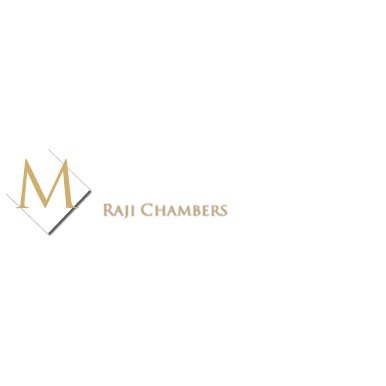Best Fintech Lawyers in Ibadan
Share your needs with us, get contacted by law firms.
Free. Takes 2 min.
List of the best lawyers in Ibadan, Nigeria

HARLEM Solicitors, Chief Wole Olanipekun (san) CRESCENT, AGODI G.R.A, IBADAN
15 minutes Free ConsultationAbout Fintech Law in Ibadan, Nigeria
Fintech, short for financial technology, is a rapidly growing sector in Ibadan, Nigeria. It refers to the use of technology to provide innovative financial services. This includes digital payment systems, mobile banking, peer-to-peer lending platforms, cryptocurrency, and more. Fintech has the potential to greatly transform the financial landscape, making services more accessible and efficient. However, as with any industry, there are legal considerations and regulations that must be adhered to.
Why You May Need a Lawyer
Seeking legal advice in the field of Fintech in Ibadan, Nigeria can be beneficial in various situations. Some common instances where you may require a lawyer in Fintech include:
- Structuring your Fintech startup or business: A lawyer can assist with entity formation, drafting of agreements, and compliance with regulatory requirements.
- Intellectual property protection: If you have developed innovative Fintech solutions, a lawyer can help protect your intellectual property through patents, trademarks, or copyrights.
- Data privacy and security: Fintech often involves the collection and processing of sensitive customer data. A lawyer can ensure compliance with data protection laws and help establish privacy policies.
- Regulatory compliance: Fintech businesses must navigate numerous regulations and licensing requirements. A lawyer can help you understand and comply with the relevant laws.
- Contractual disputes: If you encounter any legal issues or conflicts related to contracts or agreements in the Fintech sector, a lawyer can assist with dispute resolution.
Local Laws Overview
Ibadan, Nigeria has specific laws and regulations that are relevant to the Fintech industry. Some key aspects to consider include:
- The Central Bank of Nigeria (CBN) is the primary regulatory authority overseeing the Nigerian financial sector, including Fintech. Compliance with the CBN regulations is essential.
- The Nigerian Communications Commission (NCC) plays a role in regulating mobile banking, telecommunications, and digital payments.
- The Cybercrime Act of 2015 governs cybersecurity and imposes penalties for unlawful activities in cyberspace.
- Consumer protection laws, such as the Consumer Protection Council Act and the Nigerian Data Protection Regulation, safeguard the rights and privacy of individuals using Fintech services.
- Specific regulations and licenses may apply to different Fintech activities, such as payment systems, crowdfunding platforms, or cryptocurrency exchanges.
Frequently Asked Questions
1. Is peer-to-peer lending legal in Ibadan, Nigeria?
Yes, peer-to-peer lending is legal in Ibadan, Nigeria. However, platforms engaging in this activity must comply with relevant regulations and licensing requirements, such as registration with the CBN or appropriate licensing authorities.
2. Are cryptocurrencies regulated in Ibadan, Nigeria?
Yes, cryptocurrencies are regulated in Ibadan, Nigeria. The CBN has stated that cryptocurrencies are not considered legal tender, but they have not been banned. However, certain activities involving cryptocurrencies may need licensing or registration.
3. What are the key data protection requirements for Fintech companies in Ibadan, Nigeria?
Fintech companies in Ibadan, Nigeria must comply with the Nigerian Data Protection Regulation (NDPR). This includes obtaining consent from individuals before collecting their data, ensuring data security measures are in place, and providing individuals with the right to access and control their personal information.
4. Can I operate a payment system without obtaining a license?
No, operating a payment system without obtaining a license is prohibited in Ibadan, Nigeria. The CBN has specific regulations and licensing requirements for payment service providers to ensure the integrity and stability of the financial system.
5. What legal framework governs digital banking services in Ibadan, Nigeria?
The legal framework for digital banking services in Ibadan, Nigeria is primarily regulated by the CBN. Digital banking activities, such as mobile banking, internet banking, and digital payment services, must adhere to the CBN guidelines and obtain necessary licenses.
Additional Resources
For further assistance and information related to Fintech law in Ibadan, Nigeria, you may find the following resources helpful:
- The Central Bank of Nigeria (CBN): The CBN website provides updates on regulations, licensing requirements, and guidelines relevant to the Fintech sector.
- Nigerian Communications Commission (NCC): The NCC oversees telecommunications and digital payment regulations, which can impact Fintech companies.
- Nigeria Deposit Insurance Corporation (NDIC): The NDIC is responsible for promoting the stability of the Nigerian banking sector and may provide valuable insights for Fintech businesses.
- Nigerian Bar Association (NBA): The NBA can help connect you with qualified lawyers specializing in Fintech law in Ibadan, Nigeria.
Next Steps
If you require legal assistance in the field of Fintech in Ibadan, Nigeria, consider taking the following steps:
- Identify your specific legal needs: Determine the aspect of Fintech in which you require legal advice or representation.
- Research and shortlist lawyers: Look for lawyers with experience in Fintech law in Ibadan, Nigeria. Consider their expertise, reputation, and track record.
- Consult with potential lawyers: Schedule meetings or consultations with selected lawyers to discuss your legal needs and assess their suitability for your case or business.
- Engage a lawyer: Once you have found a suitable lawyer, enter into an engagement agreement, clarifying their responsibilities, fees, and timelines.
- Work closely with your lawyer: Maintain clear communication and provide all relevant information. Cooperate with your lawyer to ensure the best possible outcome for your legal needs in Fintech.
Lawzana helps you find the best lawyers and law firms in Ibadan through a curated and pre-screened list of qualified legal professionals. Our platform offers rankings and detailed profiles of attorneys and law firms, allowing you to compare based on practice areas, including Fintech, experience, and client feedback.
Each profile includes a description of the firm's areas of practice, client reviews, team members and partners, year of establishment, spoken languages, office locations, contact information, social media presence, and any published articles or resources. Most firms on our platform speak English and are experienced in both local and international legal matters.
Get a quote from top-rated law firms in Ibadan, Nigeria — quickly, securely, and without unnecessary hassle.
Disclaimer:
The information provided on this page is for general informational purposes only and does not constitute legal advice. While we strive to ensure the accuracy and relevance of the content, legal information may change over time, and interpretations of the law can vary. You should always consult with a qualified legal professional for advice specific to your situation.
We disclaim all liability for actions taken or not taken based on the content of this page. If you believe any information is incorrect or outdated, please contact us, and we will review and update it where appropriate.











